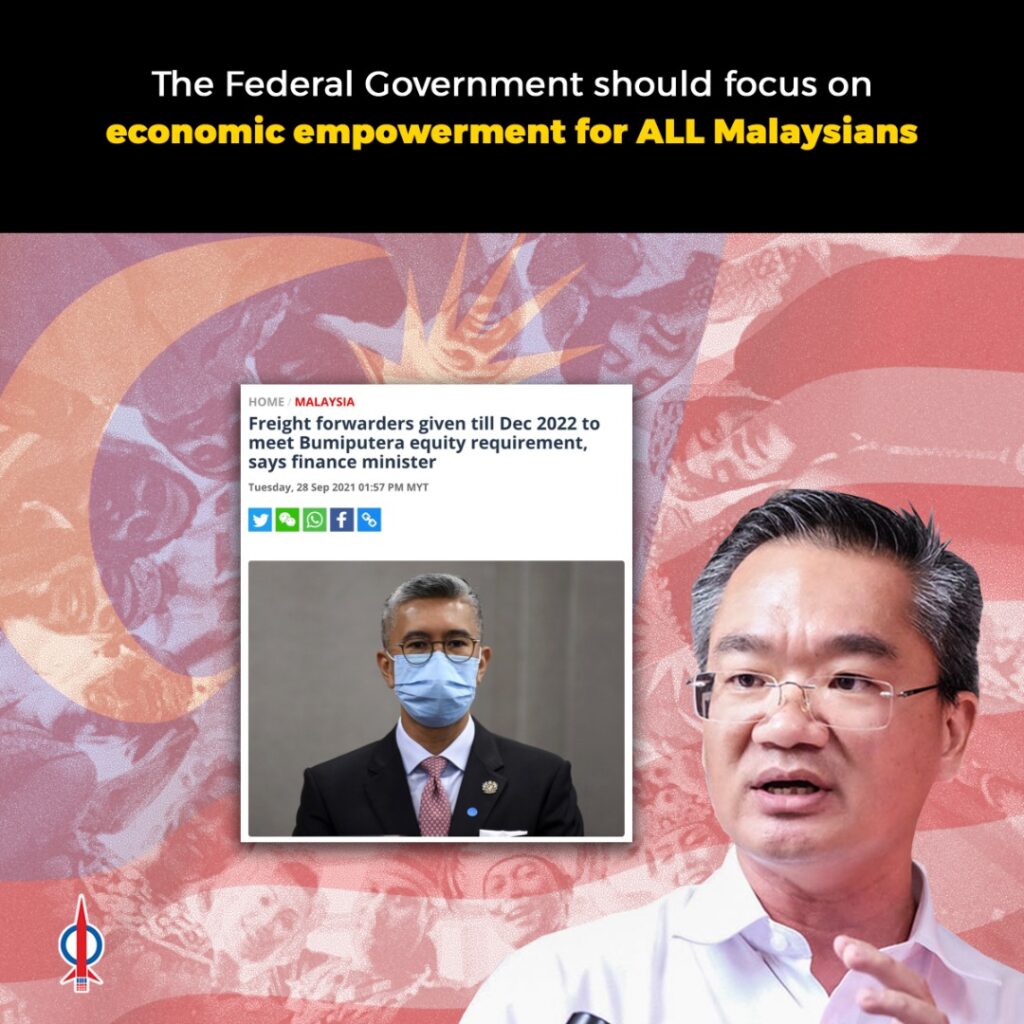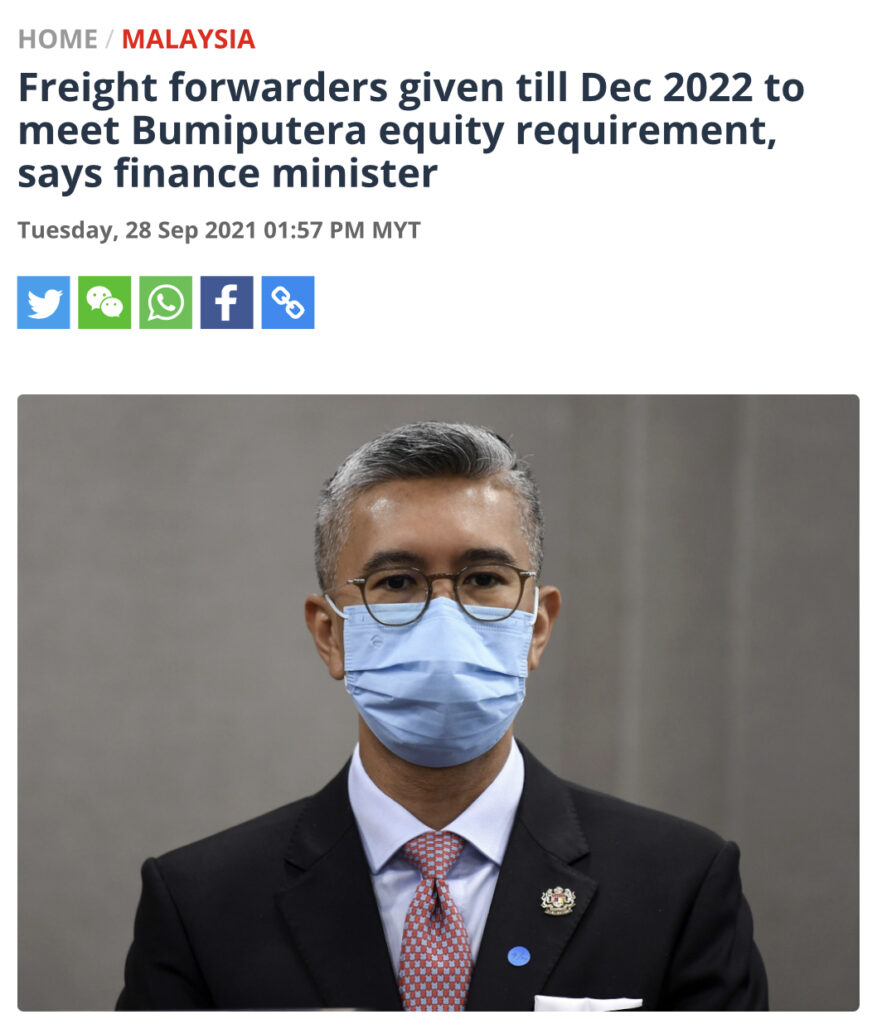Media statement by MP for Kota Melaka, Khoo Poay Tiong on 2 October 2021:

Focus on economic empowerment for all Malaysians
The issue of 51% Bumiputera equity requirement in local freight forwarding companies has raised significant public concern over the past week.
The policy, if implemented retrospectively, would indeed be unfair for freight forwarding companies who have built up their businesses over the past decades.
The Finance Minister’s decision to defer the implementation of the 51% equity requirement to December 2022 is most welcomed. The deferment, however, has not resolved the underlying issue, and we will still need to confront it in the near future. Therefore, the government needs to assess and resolve the issue in a more fundamental manner.

Bumiputra equity requirement is not new in Malaysia. It has had a long trajectory in Malaysia’s political economy. Its purpose and origins are derived from the second objective of the 1971 New Economic Policy (NEP) in 1971, which was to “accelerate the process of restructuring Malaysian society to correct economic imbalance, so as to reduce and eventually eliminate the identification of race with economic function.”
Following the NEP, the government has set a 30% Bumiputera equity ownership target, and various policies have been implemented throughout the decades to achieve the target. The NEP’s legacy has endured till today. The 30% Bumiputera equity ownership target is still part of the recently unveiled 12th Malaysia Plan for 2021 – 2025.
No doubt, the overarching intent to reduce and eliminate the identification of race with economic function, as espoused in the NEP, was necessary. For example, in 1970, 63.4% of the country’s share capital was owned by foreigners, 28.3% by non-Bumiputeras, 6.0% by nominee companies, and only 2.4% by Bumiputera individuals and Trust Agencies.
Therefore, the socio-economic reality in 1970 necessitates some form of affirmative action. This is arguably still relevant today as the household income of the Bumiputera community is still lower than the national average (national average: RM5873, Bumiputera: RM5420, Chinese: RM7391, Indian: RM5981), as revealed by the Household Income and Basic Amenities Survey Report 2019, Malaysia.
However, the Bumiputera equity policy should not be taken in isolation of other factors. It should not be implemented to the detriment of others. It should not drive away investments or make our economy less competitive. Neither should it be abused to enrich those who are well-connected.
The government should objectively assess if the Bumiputera equity policy is still relevant and effective to eradicate poverty and inter-racial inequalities. In this regard, several questions arise in relation to the 51% Bumiputera equity requirement for local freight forward companies:
First, how would this policy benefit the lower-income Bumiputera community instead of the economic elites who are already wealthy?
Second, how would the government justify enforcing this requirement to local freight forwarding companies yet giving exemption to foreign-owned and public listed companies? Such inconsistency is grossly unfair and not helpful for local SMEs, who are the backbone of our economy.
Third, it is a common practice among businesses to circumvent the equity requirement by using proxies or nominees. How does the government intend to monitor and reduce such loopholes?
Fourth, where do we draw the line in Bumiputera equity requirements? Does the government intend to introduce more of such requirements in other industries?
The immediate priority of the government should be on rebuilding the country’s economy and livelihood of the people, especially after the devasting Covid-19 pandemic.

By the government’s own admission, the absolute poverty rate in Malaysia has risen from 5.6% in 2016 to 8.4% in 2020. The income level of over 580,000 families has dropped from the M40 level to B40 level. Many SMEs are still uncertain if they can survive in the coming months.
The 12th Malaysia Plan speaks loudly about strengthening the security, wellbeing and inclusivity among the people. The government seeks to ensure social justice and improve the standard of living for the people.
These issues and vision cut across race. As such, the government should stop obsessing about the numbers, be it 30% or 51%, and focus on economic empowerment for all Malaysians.



